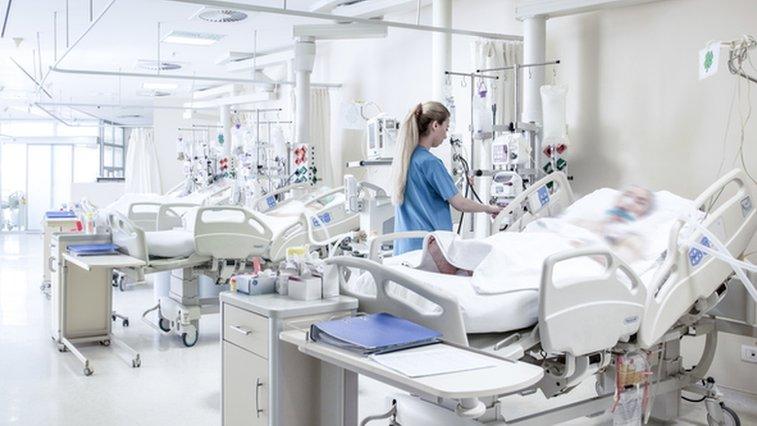Coronavirus in Scotland: How can we restart the NHS?
- Published
- comments
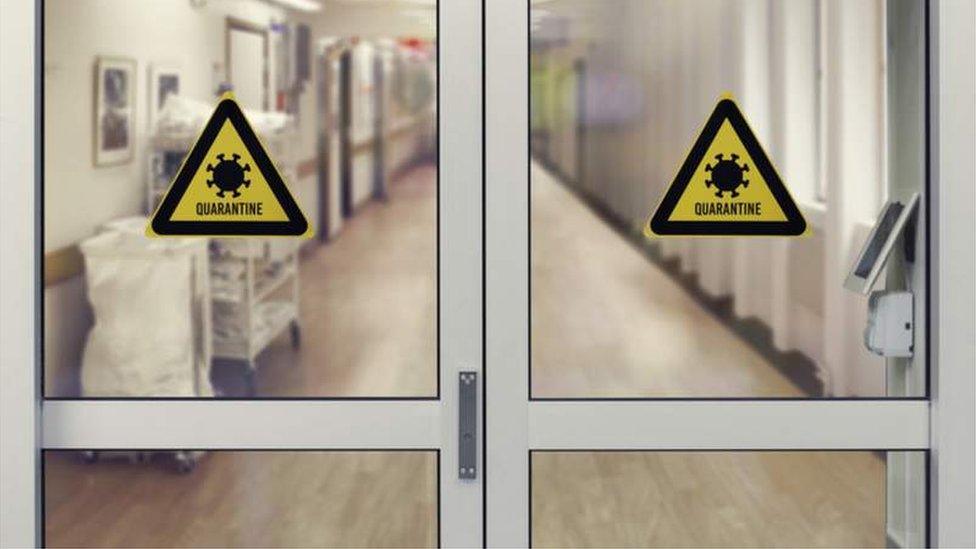
Medics say the NHS cannot rapidly return to the way it was before
The NHS was transformed in a matter of weeks to cope with coronavirus. But now that we have seen that "significant and sustained" reduction in cases, the more challenging job for our health service will be how to restart.
It's not going to be quite as straightforward as "crisis over - press green for go".
First of all staff who have been working flat out on the front line need a break. Many of the nurses, doctors, physios, radiographers on the Covid wards cancelled leave, postponed weddings or stayed away from their family.
Our hospitals may have coped with the numbers of patients but many staff will be physically and mentally drained.
Then there is the lost 10 weeks.
Before the Covid crisis so swiftly arrived, reducing waiting times for things like cancer diagnoses or routine operations had been a priority for the health secretary.
Hundreds of millions of pounds had been spent on efforts to meet targets to start cancer treatment or to get a hip or knee operation.
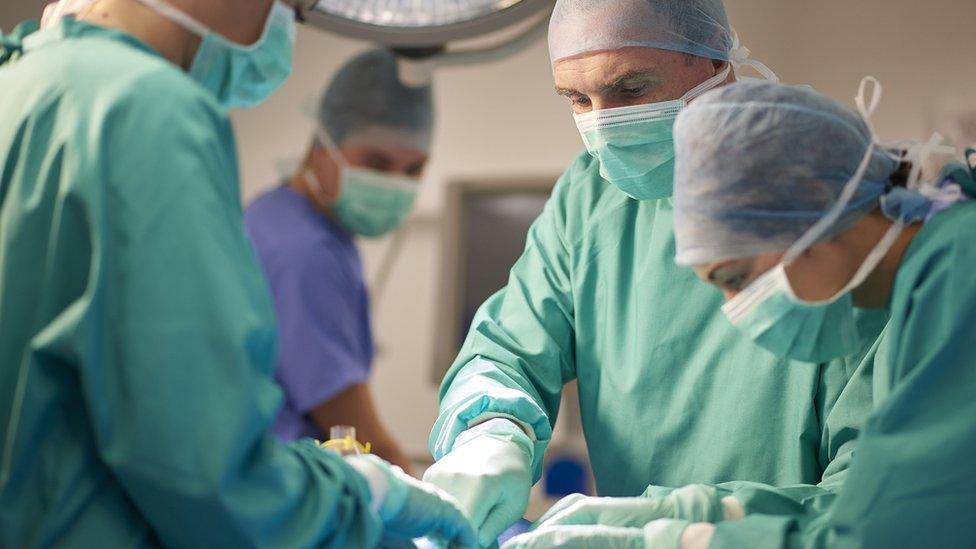
Planned operations have been dramatically scaled back during the pandemic
Those patients haven't gone away. New figures from Public Health Scotland show that the number of planned operations that took place in April this year was 3,406. Last April it was 27,204, that's a drop of 87.5%.
Clearing the backlog is going to be hard.
And there is the very real understanding that coronavirus is also here for a long time to come. So what measures will hospitals have to take to ensure patients coming in for scans or operations or routine treatment don't have Covid or are protected against it while they are there?
A number of things are likely to happen but it will not be easy to restart.
Phase one, outlined by the health secretary in her Re-mobilise, Recover, Re-design, external framework, says we will see the extension of some emergency eye or dental treatments as well as some urgent elective surgery and IVF programmes.
There will also be an increase in mental health support. But the NHS remains on an emergency footing ready to respond to a second wave of coronavirus.
Some health boards that have seen relatively few Covid cases could start to scale up operations more quickly than others.
We've already seen some detail from NHS Highland on how it intends to prioritise services.
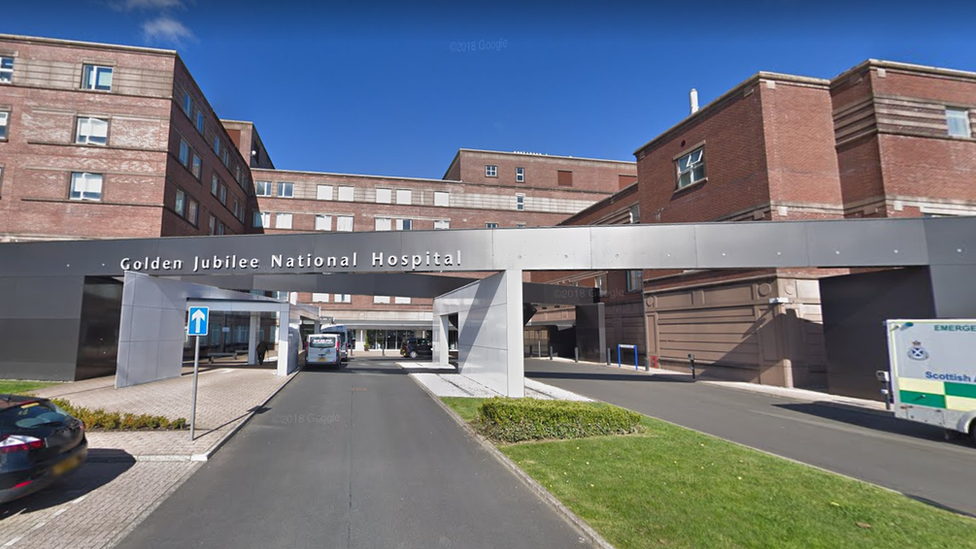
The Golden Jubilee Hospital could play a key role in clearing the backlog of non-urgent operations
There may also be a key role for The Golden Jubilee Hospital in Clydebank. Alongside urgent surgery and transplants, its purpose is to carry out planned operations.
The hospital should be in a position to step up quickly and get some of those priority routine procedures under way.
But whatever remobilisation plans the health service has, they will involve seeing fewer patients as social distancing measures are in place.
Staff will have to overcome the difficulties of working in PPE and it requires more and quicker testing to ensure patients are Covid-free when they arrive at hospital, and are Covid-free when they leave.
Dr Lewis Morrison, head of the BMA in Scotland, says things aren't going to return rapidly to the way they were.
"Wearing PPE, ensuring that clinical areas are cleaned, ensuring social distancing in between seeing patients mean that we're going to have to take more time over healthcare," he said.
"My anticipation is that services for the more serious or urgent cases will be the ones to get back to normal first over coming weeks and months but more routine care is going to have to wait longer."
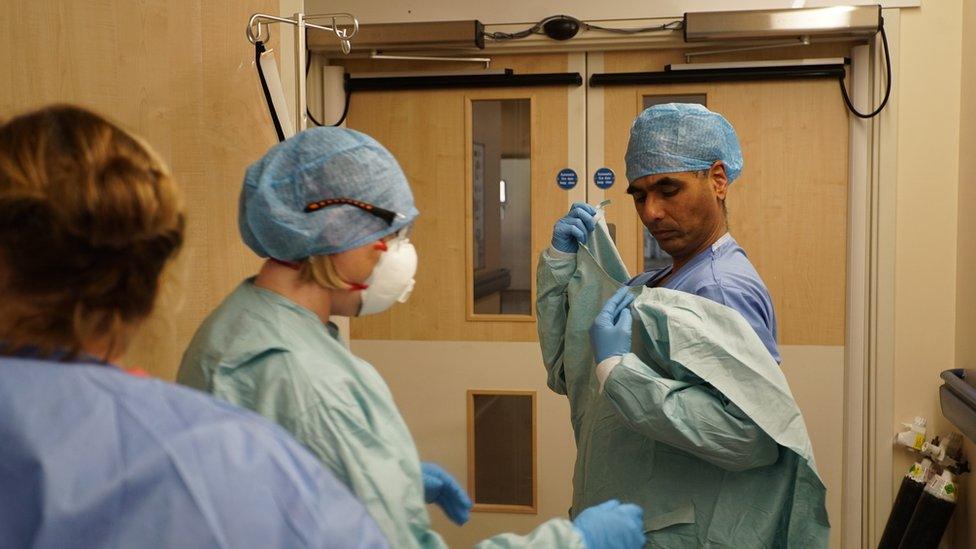
Personal protective equipment will continue to be needed as the NHS restarts non-Covid services
Cancer charities are already calling for a clear and decisive plan to improve cancer care.
Around 32,000 people are diagnosed with cancer each year in Scotland, but halting routine screening, delays in referral or diagnosis and the postponement of all but urgent surgery has led some to warn the consequences could be worse in the long term than Covid.
Most of the medics that I speak to are pragmatic. They know that a balance has to be struck between allowing some kind of normality and keeping the virus at bay.
But they also want politicians and patients to be realistic about the sort of service the NHS can offer, not just now, but possibly in the long term.
So that is why those working in health and social care say the restart needs to be safe and sustainable, not business as usual.
There is some acknowledgement of this in the government's document "Re-mobilise, Recover, Redesign". One of the objectives is to create a more efficient health and care system.
It's a recognition of the financial pressures the health service was under before Covid and the pressures it will continue to face after.
- Published2 June 2020
